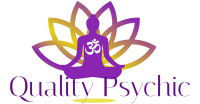Homeopathy, also known as homeopathic medicine, is considered by some to be a controversial alternative medicine system. The system was founded by a German physician, Dr. Samuel Christian Hahnemann, in the early 19th  century. It is based on the theory that “like cures like”, a disease can be cured by the use of ingredients that produce similar reactions in healthy individuals; and “law of minimum dose”, the use of the lowest dose of the substance will produce positive cures. In fact, in many preparations, there are no traces of any molecules from the original substance.
century. It is based on the theory that “like cures like”, a disease can be cured by the use of ingredients that produce similar reactions in healthy individuals; and “law of minimum dose”, the use of the lowest dose of the substance will produce positive cures. In fact, in many preparations, there are no traces of any molecules from the original substance.
One of the main philosophies of homeopathic medicine is that the body has the ability to heal itself. A homeopath, or a homeopathic health practitioner uses pills or liquid mixtures containing a very small amount of the active ingredient. These remedies are derived from animals, minerals, plants, or some medications. Treatments vary between individuals, even in those with the same medical problem. Regimens are tailored by the homeopath for each individual after thoroughly reviewing the patient’s symptoms.
Like with like
Homeopathy is based on the principle that you can treat ‘like with like’, that is, a substance which causes symptoms when taken in large doses, can be used in small amounts to treat similar symptoms. This concept is sometimes used in conventional medicine, for example, the stimulant Ritalin is used to treat patients with ADHD, or small doses of allergens such as pollen are sometimes used to de-sensitize allergic patients.
Science was unable to explain the mechanism of action of ultra high dilutions in the body, but laboratory experiments have demonstrated that homeopathically prepared substances can cause biological effects and are distinct from pure water, as some sceptics have suggested. There is also a growing body of research into homeopathy in practice that supports the suggestion that homeopathy can be effective, cost- effective and safe as a treatment option.
Homeopathy has historically been used for maintaining health and cures for long-standing illnesses, such as teething,
allergies, arthritis, migraines, dermatitis and irritable bowel syndrome. This therapy is also used to treat minor injuries, such as bruises, cuts and muscle cramping. It is not recommended for major illnesses, such as cancer or for any medical emergency. Although many homeopaths may discourage the use of standard immunizations, it is still vital to consult with your physician about vaccination their benefits and risks.
Origins
The principle of treating “like with like” dates back to Hippocrates (460-377BC) but in its current form, homeopathy has been widely used worldwide for more than 200 years. Was discovered by a German doctor, Samuel Hahnemann, who shocked with the harsh medical practices of the day, looked for a way to reduce the damaging side-effects associated with medical treatment.
Critics believe that ho meopathic remedies merely create a placebo effect in individuals and that there is no real medicinal benefit experienced. Studies have been done to show how the homeopathic remedies work. These studies were not conclusive; however, many patients did experience benefits from the remedies that were different from the reactions of those who were given placebos
meopathic remedies merely create a placebo effect in individuals and that there is no real medicinal benefit experienced. Studies have been done to show how the homeopathic remedies work. These studies were not conclusive; however, many patients did experience benefits from the remedies that were different from the reactions of those who were given placebos
Homeopathic remedies can be beneficial, whether or not healing is experienced from the medication or induced by a placebo effect. Just be sure that you discuss with your health-care provider any alternative therapies you might be considering.



This article seems overly optimistic about homeopathy without addressing the glaring lack of scientific evidence. Homeopathic remedies often lead people to forego proven treatments, which could be dangerous. We need a more balanced view that highlights potential risks.
I found this article about homeopathy quite enlightening! The idea that ‘like cures like’ is fascinating and challenges traditional medical thinking. It’s refreshing to see alternative medicine gaining some recognition. I’m eager to learn more about its applications.
While the principles behind homeopathy are intriguing, it’s essential to critically assess its effectiveness based on rigorous scientific standards. The placebo effect can play a significant role in perceived benefits. More research is needed for informed decisions in healthcare.
“Ultra high dilutions” must be code for ‘watered-down nonsense.’ I guess if you drink enough of it, you’ll float away on a cloud of denial! Seriously though, let’s stick with treatments backed by real science!
‘Homeopathy has been used for over two centuries,’ they say… as if time alone makes something effective or valid! If it’s not scientifically proven, it’s just an old wives’ tale dressed up in fancy language.
*chuckles* Exactly! Next thing we know, they’ll be claiming that holding crystals will align our chakras too! Let’s not forget: anecdotal evidence doesn’t replace rigorous testing!
“Like cures like,” huh? So if I eat a chocolate cake, I should expect to lose weight? Brilliant logic! Just kidding—homeopathy sounds great until you realize it’s based on concepts that even my dog wouldn’t buy into.
*sips water* Ah yes, the magical healing powers of water! Who knew I just needed a sprinkle of fairy dust to cure my ailments? If only my doctor had told me that sooner—I’m off to buy some ‘remedies’ now!
I disagree with the positive portrayal of homeopathy here. It’s outdated and unproven! Relying on such methods can hinder patients from receiving effective treatments. We should advocate for science-based medicine instead of romanticizing dubious practices.